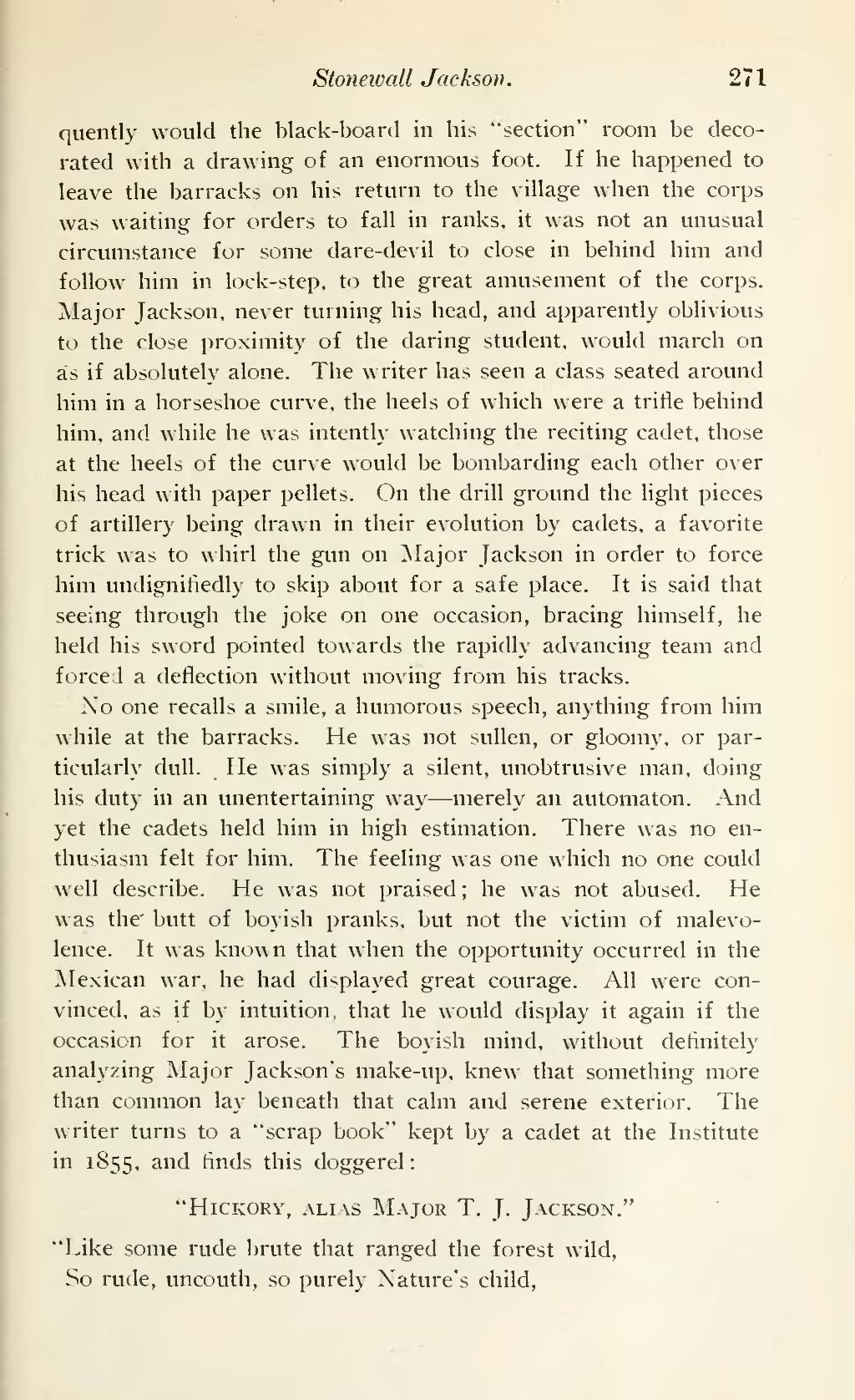quently would the black-board in his '"section" room be decorated with a drawing of an enormous foot. If he happened to leave the barracks on his return to the village when the corps was waiting for orders to fall in ranks, it was not an unusual circumstance for some dare-devil to close in behind him and follow him in lock-step, to the great amusement of the corps. Major Jackson, never turning his head, and apparently oblivious to the close proximity of the daring student, would march on as if absolutely alone. The writer has seen a class seated around him in a horseshoe curve, the heels of which were a trifle behind him, and while he was intently watching the reciting cadet, those at the heels of the curve would be bombarding each other over his head with paper pellets. On the drill ground the light pieces of artillery being drawn in their evolution by cadets, a favorite trick was to whirl the gun on Major Jackson in order to force him undignifiedly to skip about for a safe place. It is said that seeing through the joke on one occasion, bracing himself, he held his sword pointed towards the rapidly advancing team and forced a deflection without moving from his tracks.
No one recalls a smile, a humorous speech, anything from him while at the barracks. He was not sullen, or gloomy, or particularly dull. He was simply a silent, unobtrusive man, doing his duty in an unentertaining way—merely an automaton. And yet the cadets held him in high estimation. There was no enthusiasm felt for him. The feeling was one which no one could well describe. He was not praised; he was not abused. He was the' butt of boyish pranks, but not the victim of malevolence. It was known that when the opportunity occurred in the Mexican war, he had displayed great courage. All were convinced, as if by intuition, that he would display it again if the occasion for it arose. The boyish mind, without definitely analyzing Major Jackson's make-up, knew that something more than common lay beneath that calm and serene exterior. The writer turns to a "scrap book" kept by a cadet at the Institute in 1855, and finds this doggerel:
"Hickory, alias Major T. J. Jackson."
"'Like some rude brute that ranged the forest wild,
So rude, uncouth, so purely Nature's child,
